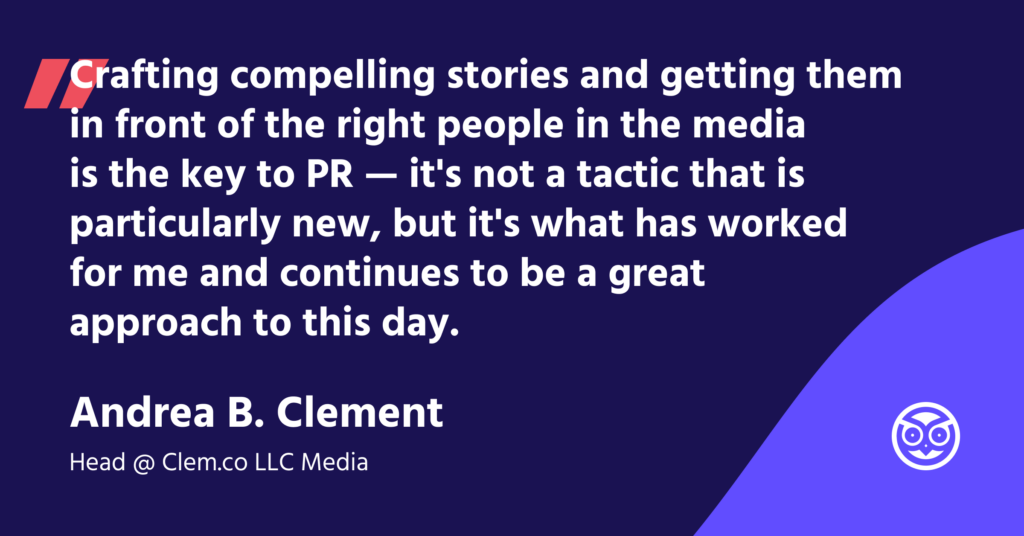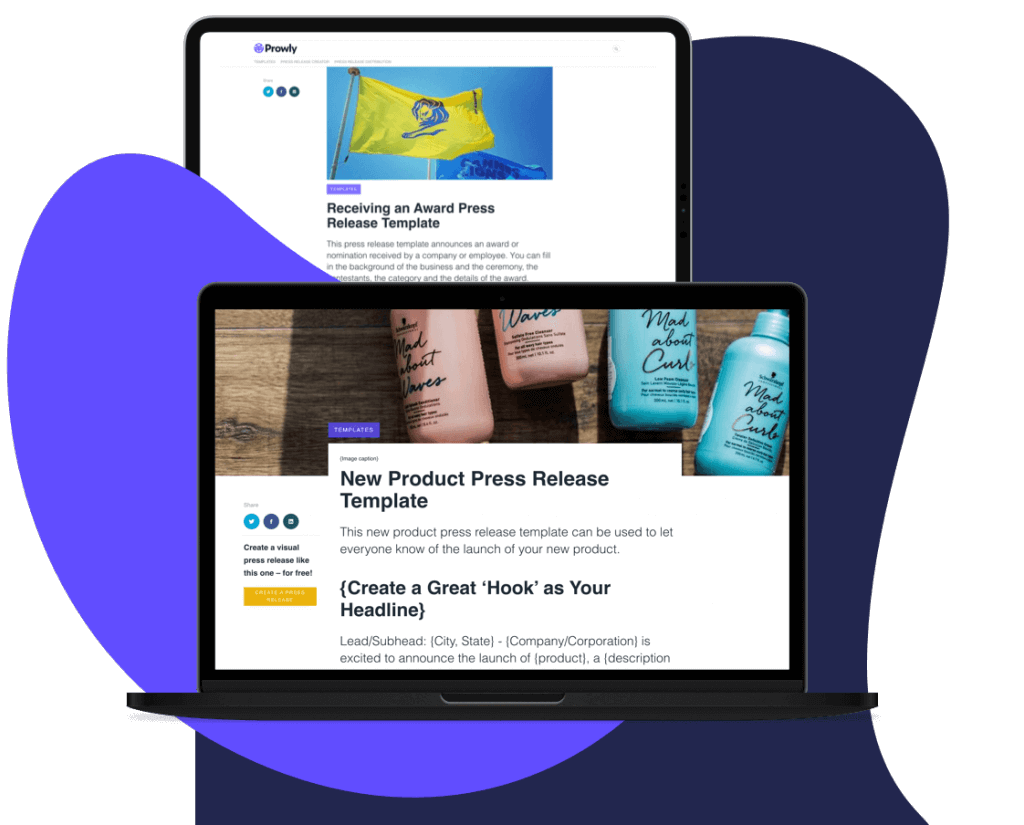Prowly #PRChat is where we share the thoughts, ideas, insights, and more from a diverse group of leaders in our field. Want to know what everyone will be talking about in a few months? Read about what these people are talking about today.
This time, it’s Andrea B. Clement, Head of Clem.co LLC Media and career advice guru at CareerCollateral.com. If Andrea hasn’t heard about it, written about it, or Tweeted about it, it probably doesn’t exist. Here’s what she had to say in response to our questions about several topics, particularly how PR intersects with so many other industries.
How does your background in sales help you with PR efforts for your clients?
Sales skills are very helpful in multiple ways in PR! First of all, PR is essentially sales – in PR, you are selling stories to the media, even though media professionals are not buying the stories from you with money, they are buying your stories with their time, interest, & coverage.
Secondly, customer service and interpersonal skills go a long way. I believe that the most successful PR professionals truly enjoy helping others to achieve their goals. When you consider any professional role from the standpoint of helping others, you will be more successful, in my opinion and experience.
In PR, we work with many people on both sides of the business: we are constantly juggling the needs of our clients along with the media professionals & their objectives. Many PR reps are focused on providing great service to their clients, which is obviously paramount. If you also treat media professionals with great customer service skills, this will facilitate your success tremendously. It sounds simplistic, but I think many people forget how important this is.
A few tips that have worked for me are:
- Present a variety of talking points and angles
- Include an expert for an interview, if applicable, and an available scheduling window to talk to the expert
- Provide high-quality content that is ready to publish, so that the reporter has to do less work (executive statements, soundbites, multimedia, etc.)
What’s special about doing PR in the healthcare industry?
I love working in the healthcare industry because there is always something new and different happening – e.g. new technologies, trends, innovation… Working in healthcare is never the same day twice.
Healthcare is definitely not the most glamorous industry for PR, though – I’m not getting free tickets, fancy swag bags, or invites to any exciting events (except for an occasional medical conference), nor am I walking down the red carpet with my clients like some of my PR counterparts in other industries, such as entertainment, fashion, or music. Still, working in healthcare media and PR has been very rewarding, because I feel like I’m part of something bigger than me, and that in some small way I’m helping to make an impact on people’s lives and health, even if it’s indirectly.
What’s something that should every PR practitioner stop doing?
I’m not a fan of blasting your pitches out to everyone regardless of their beat, outlet, or audience (some call this the “spray & pray” approach). I think it’s more beneficial to do research in advance and target your pitches to the outlets and reporters that are most applicable to your news story. It’s annoying to get hundreds of pitches about fashion when you write about medical news, for example.
What’s a recent thing you tried in your company that you were surprised by the result of?
Everyone is so focused on digital media, but I’ve found that traditional media still has a tremendous impact! My clinical research client is one example – each time we’d secure media coverage of a new clinical trial, they’d see an immediate bump in patient enrollment in the area where the story ran, which is exactly the desired result! This includes local newspapers and network affiliates on TV, and even some radio.
What is the most gratifying part of your job?
Helping businesses grow by securing media coverage and creating content that achieves results for my client companies. Also, it’s rewarding to help get important stories out to the public to make a positive impact on health and wellness.
What’s one successful PR tactic you are using at the moment?
I think just crafting compelling stories and getting them in front of the right people in the media is the key to PR – it’s not a tactic that is particularly new, but it’s what has worked for me and continues to be a great approach to this day.
It’s also been useful to build relationships with members of the media by being a helpful resource for them – providing a variety of targeted angles, stories, talking points, and so on. Also, timing is key! Consider the news cycle and time your pitches accordingly if possible to tie into current events and trending topics.

What skills do you think PRs need to be successful long-term?
As with any career, it helps to be passionate about the role. In PR, it helps to really love the media industry, and that includes enjoying working with people and loving to write, and doing these things well. Also, having empathy and critical thinking skills is key since you have to look at stories from multiple angles, consider your audience, the media outlet… Always look at stories from a variety of perspectives – not just yours or your client’s.
What’s the best advice you can give PR students and interns?
PR is a fantastic and fun career, but it’s very hard work – especially when you’re new to it and learning the ropes, so try not to get discouraged if you have challenges as a newbie. You must love to write and enjoy working with people. PR requires you to roll up your sleeves and do a lot of work!
It’s a labor-intensive role (think research, strategy, writing, pitching, following up, setting interviews, more follow up, media monitoring, etc.) which is why so many companies and brands need PR help! That said, with experience you can learn to work smarter, not harder.

